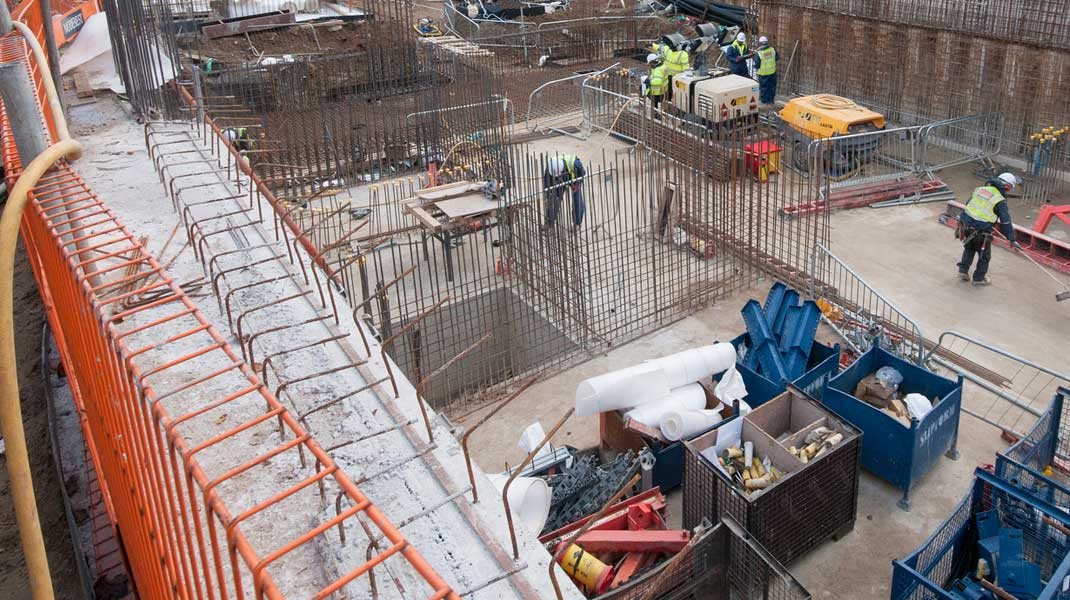If you’ve viewed the impressive high rise developments in the Vision Construct property portfolio, you’ll know many of these new builds were completed in and around London. Over the years, we’ve learnt an inordinate amount about laying deep foundations to support heavyweight buildings. We’ve also gained an invaluable understanding of what it takes to lay foundations with minimal disruption to city life. Here’s a little of what we know.
It all starts with soil
Establishing how deep your foundations can go starts with a soil study that drills into the ground to remove soil samples. The results of this study tell a structural engineer how strong the soil is at a range of depths and determines their design plan. This design will dictate the depth, type and size of the foundations that should be carried out by us, the builders.
Planning the foundations
Once instructed to complete a build, we undertake a detailed project plan that incorporates the type of foundations we will construct. Different foundations affect our budget and schedule in varying ways. For example, ordering the materials for Pile Foundations – which are capable of supporting high rise structures better than Spread Footings – might be more expensive. However, Raft Foundations, which might be used in the construction of a basement carpark where weak soil means weight should be spread evenly, can require extra labour.
The type of foundations we decide to build impacts on the level of labour we’ll need, the time it takes to complete and, ultimately, our client’s budget. So the process we use to decide is as precise and scientific as it can be.
As members of The International Institute of Risk & Safety Management (IIRSM), safe construction is paramount for Vision Construct. The most important piece of advice we would give anyone laying deep foundations is to have a reliable risk assessor visit your site before work starts. Whether transporting demolition rubble to be used as hardcore, excavating large quantities of soil or backfilling foundations, the risk should be considered at every stage.
Making existing foundations safer and stronger by underpinning is something we undertake if a building is being enlarged or converted for a new purpose. It’s an essential part of our refurbishment offering, which guarantees that converted buildings last well into the future in their new state. We work with expert and creative structural engineers to find resourceful methods of shoring up existing foundations. Our conversion of Farningham Mill in Kent is a prime example.
Investing in the future
Using the latest drilling technology enables Vision Construct to lay deep foundations as economically as possible. The longevity of our good name also allows us excellent rates with our suppliers and builders’ merchants. If you’re a housing association or an RSL, there’s every reason to choose us to build the foundations of your affordable housing project. From the bottom up, we’ll build stylish homes that stand the test of time.
Get in touch to discover how our experience and expertise can help your next construction project.



